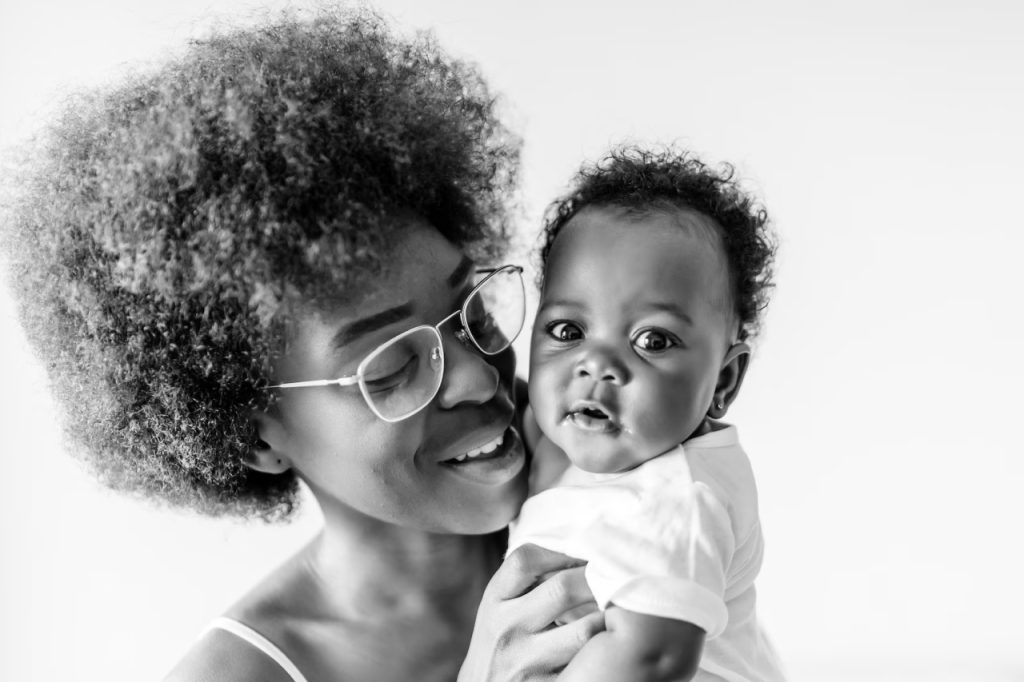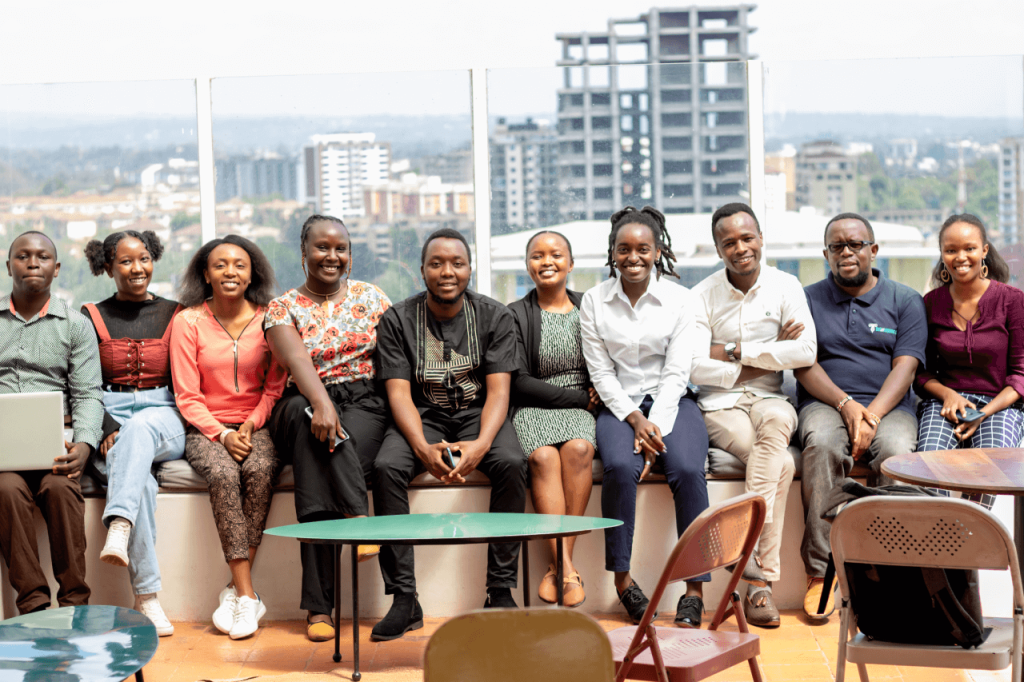Overview
The Mideva Design Fellowship offers an immersive environment for professionals seeking to build the skills, mindsets, work experience, network and credibility to begin, transition, or develop their careers in research, human-centered design and innovation.
The fellowship bridges the gap between design education and the industry by bringing learners, practitioners, change-makers, and organizations together.
Get In Touch:
Tel: +254 794 896 575 or Email: df@mideva.co
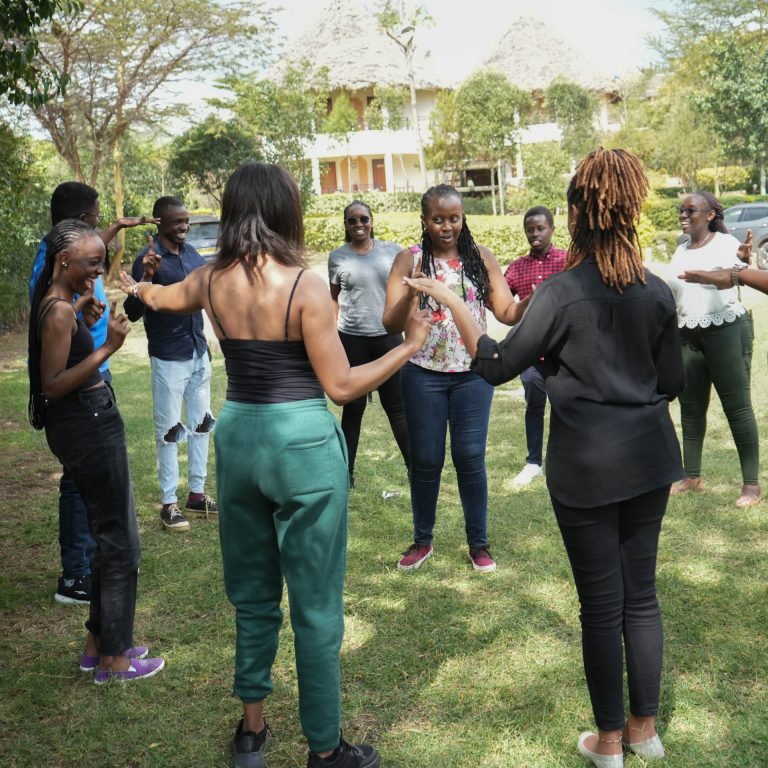
The 2024 design fellowship Programs
Full-Intensive Design Fellowship
Overview
A 4-month in-person immersive, collaborative and intense fellowship for professionals looking to practice human-centered design on real-life projects and keen to transition their careers into research, design and innovation. Ideal for someone looking to be a design researcher, business designer, communications designer, product designer or program designer.
Learning & Practice Project
You will work collaboratively with other fellows, the fellowship team and project partners (clients) on two real-life projects (fellow-led and client-led), from research to solution-testing.
Commitment
4 months (in-person studio sessions) – in Nairobi
Program Cost
Kes 140,000/= This covers your learning experience, projects and learning support. Flexible payment options are available. Commitment cost before program cost: Kes. 50,000/=
Eligibility
- At least 2 years of work experience
- Commit full-time (at least 32 hours per week for the 4 months)
- Interest in Human-centered Design/Design Thinking
- Available in person for the program (in Nairobi)
- Interest in social impact and social innovation
Foundational Design Fellowship
Overview
Introduction to Human-centered design. Collaborate and work on current social challenges or Mideva-inspired community projects using 21st-century skills. This will help you gain experience and start your path in design.
Learning & Practice Project
Fellow-inspired project
Commitment
Full time (10 Weeks)
Program Cost
80,000 Kshs ( Limited scholarships and financing options available)
Eligibility
- 0-2 years of work experience
- Commit Full time ( 20 hours/ 2.5 days in-studio work, 16 hours off-studio sessions)
- Can be available in person during the fellowship.
- Looking to start your path in design
Fellowship breakdown
Full-Intensive Design Fellowship
Month 1
Week 1: Introduction to HCD
- Develop a beginner’s mindset by exhibiting a point of view that describes the role of human centered design and design thinking in the context of research, design and innovation in solving social and business challenges.
Week 2: Design project introduction and scoping
- Understand how to break down a design brief from a client and develop an initial understanding of the landscape, users, stakeholder ecosystem, objectives, success metrics and client needs.
Week 3: Introduction to Design Research
- Understand the role of design research in understanding the project context and informing interventions by setting aside assumptions, developing hypotheses and reframing problems through qualitative and quantitative desk and field research.
Week 4: Design research work planning + Behavioral Research
- Learn how to plan for design research, recruit participants for interview and design experiential research activities that promote active participation and co-creation of solutions with users virtually and in-field.
- Fundamental understanding of how to identify and predict human behavioral patterns, and positively influencing behavioral outcomes in the pursuit of changing social behavior for good from research to design.
Month 2 ( Fellows - inspired Design Sprint)
Week 5: Stakeholder mobilization + Remote research
- Recruit project participants to participate in the empathising activities to gather qualitative and quantitative data from that will inform your solution. Learn and apply learnt remote design research methodologies to gather insights remotely.
Week 6: Field research
- Apply and execute learnt field design research methodologies and tools to understand the needs, pain-points, behaviors, mindsets and motivation of users when using a product or service.
Week 7: Design Synthesis + Business Design Basics
- Understand the role of research, qualitative data analysis and synthesis in the design process and how to extract insights from data. Learn how to use insights to forge new design ideas or improve existing ideas out of innovative combinations of opportunities for design.
- Bridge the customer desirability and business-model viability and feasibility gaps by learning the basics of innovating around new and existing models.
Week 8: Ideation + Conceptualization
- Learn how to create an environment to successfully ideate, different ideation methods and how to visualise ideas. Learn how to brainstorm through and cluster multiple ideas, and the decision-making process of selecting what ideas to prototype to align with target audience’s needs and motivations.
Month 3 ( Client based project sprint)
Week 9: User-testing & Concept refinement + Storytelling
- Learn how to conduct evaluative research to validate the desirability of your concepts and prototypes by taking your target audience through the features and functionalities of your product to validate it’s desirability and help refine your product into a solution that sits closer to your target audience’s needs
Week 10: Alignment, project scoping and desk research
- Conduct alignment and co-creation workshops on the design challenge brief and scope, set context, discuss key objectives, and metrics for the success of the project with the client and key stakeholders. Review secondary data and baseline reports, and leverage this to plan for design research.
Week 11: Design Research planning and mobilization
- Map out all the stakeholders involved in the project and design research plans, goals, guides, tools and questions for data collection methods. Recruit participants for research and data collection activities.
Week 12: Remote and field design research + Synthesis
- Execute design research using the several approaches designed for data collection, depending on the context and the stakeholder profile.
Month 4
Week 13: Opportunity area exploration+ Ideation
- Make sense of the data through empathy maps, experience journey maps, persona profiles and opportunity areas and highlight emerging areas for design through co-creation activities with key stakeholders.
Week 14: Conceptualisation and prototyping
- Improve existing or build new concepts by co-designing and prototyping product, service or models that meet are desirable, feasible and viable goals of the key stakeholders.
Week 15: User-testing + concept refinement
- Design and carry out experiments to test out and validate some of the concepts and ideas that will have been generated. Make final revisions of the actionable concepts and review the operating environment and resources needed for the pilot to be effectively implemented
Week 16: Work Readiness + Presentations, Reflections and graduation
- Final project presentation and a time to reflect back on the journey that has been and in celebration of what is ahead!
Foundational Design Fellowship
Week 1-4
Week 1: Introduction to HCD
- Develop a beginner’s mindset by exhibiting a point of view that describes the role of human centered design and design thinking in the context of research, design and innovation in solving social and business challenges.
Week 2: Design project introduction and scoping
- Understand how to break down a design brief from a client and develop an initial understanding of the landscape, users, stakeholder ecosystem, objectives, success metrics and client needs.
Week 3: Introduction to Design Research
- Understand the role of design research in understanding the project context and informing interventions by setting aside assumptions, developing hypotheses and reframing problems through qualitative and quantitative desk and field research.
Week 4: Design research work planning + Behavioral Research
- Learn how to plan for design research, recruit participants for interview and design experiential research activities that promote active participation and co-creation of solutions with users virtually and in-field.
- Fundamental understanding of how to identify and predict human behavioral patterns, and positively influencing behavioral outcomes in the pursuit of changing social behavior for good from research to design.
Week 5-8
Week 5: Stakeholder mobilization + Remote research
- Recruit project participants to participate in the empathising activities to gather qualitative and quantitative data from that will inform your solution. Learn and apply learnt remote design research methodologies to gather insights remotely.
Week 6: Field research
- Apply and execute learnt field design research methodologies and tools to understand the needs, pain-points, behaviors, mindsets and motivation of users when using a product or service.
Week 7: Design Synthesis + Business Design Basics
- Understand the role of research, qualitative data analysis and synthesis in the design process and how to extract insights from data. Learn how to use insights to forge new design ideas or improve existing ideas out of innovative combinations of opportunities for design.
- Bridge the customer desirability and business-model viability and feasibility gaps by learning the basics of innovating around new and existing models.
Week 8: Ideation + Conceptualization
- Learn how to create an environment to successfully ideate, different ideation methods and how to visualise ideas. Learn how to brainstorm through and cluster multiple ideas, and the decision-making process of selecting what ideas to prototype to align with target audience’s needs and motivations.
Weeek 9-10
Week 9: User-testing & Concept refinement + Storytelling
- Learn how to conduct evaluative research to validate the desirability of your concepts and prototypes by taking your target audience through the features and functionalities of your product to validate it’s desirability and help refine your product into a solution that sits closer to your target audience’s needs
Week 10: Work Readiness + Presentations, Reflections and graduation
- Final project presentation and a time to reflect back on the journey that has been and in celebration of what is ahead!
Learning Approach
Facilitated learning and coaching sessions (with experienced facilitators, design practitioners, design leaders and other industry leaders)
Immersion in real-time design projects (in collaboration with partner organizations)
Peer learning and collaborative working sessions
Immersion in diverse work environments
Practice of 21st century skills such as leadership, project management, communication and collaboration
Field and community immersion experiences
What the fellowship offers
Immersive Learning Experience:
Gain hands-on experience and practical skills in human-centered design, behavioral design and other innovation methodologies. You will learn through workshops, training sessions, coaching, and real-world projects.
Interdisciplinary Collaboration:
You will be taking the fellowship alongside participants from diverse backgrounds, such as marketing, design, engineering, psychology, and business, among others.
Portfolio Development:
By working on real-world design projects and receiving feedback from facilitators and design practitioners, you will build a strong portfolio showcasing your design skills and experience, which will be valuable when for your next journey in employment or consulting.
Exposure to Industry Practices:
You will have the opportunity to learn about the latest trends, tools, and best practices in the field of human-centered design and innovation which can provide you with insights into how HCD is applied in different industries and sectors.
Personal and Professional Growth:
You will be able to enhance your creativity, critical thinking, empathy, communication, project management, team collaboration and leadership abilities throughout the fellowship.
Professional Networking:
You will have the opportunity to build a professional network in the field of human-centered design and in the sectors of the project through your interaction with partners, clients, mentors and facilitators.
Real-World Design Projects:
The fellowship involves you working on real-world design challenges or projects, with your peers and the Design Studio team. You will apply your skills and knowledge to solve complex problems, address user needs, and create innovative, impactful and sustainable solutions.
Mentorship and Guidance:
As part of the fellowship, you will receive mentorship and guidance from experienced professionals in the field of human-centered design. This will include valuable insights, feedback, and support as you navigate through the fellowship and as you develop your skills.
This year’s learning projects will focus on:
Sustainable Agriculture and Food Systems
Quality Health Care and Access
Caregiving and Parenting
Consultancy and freelancing
Sustainability and Climate Action
Experiences and testimonial by past fellows
Here are some experiences from past design fellows
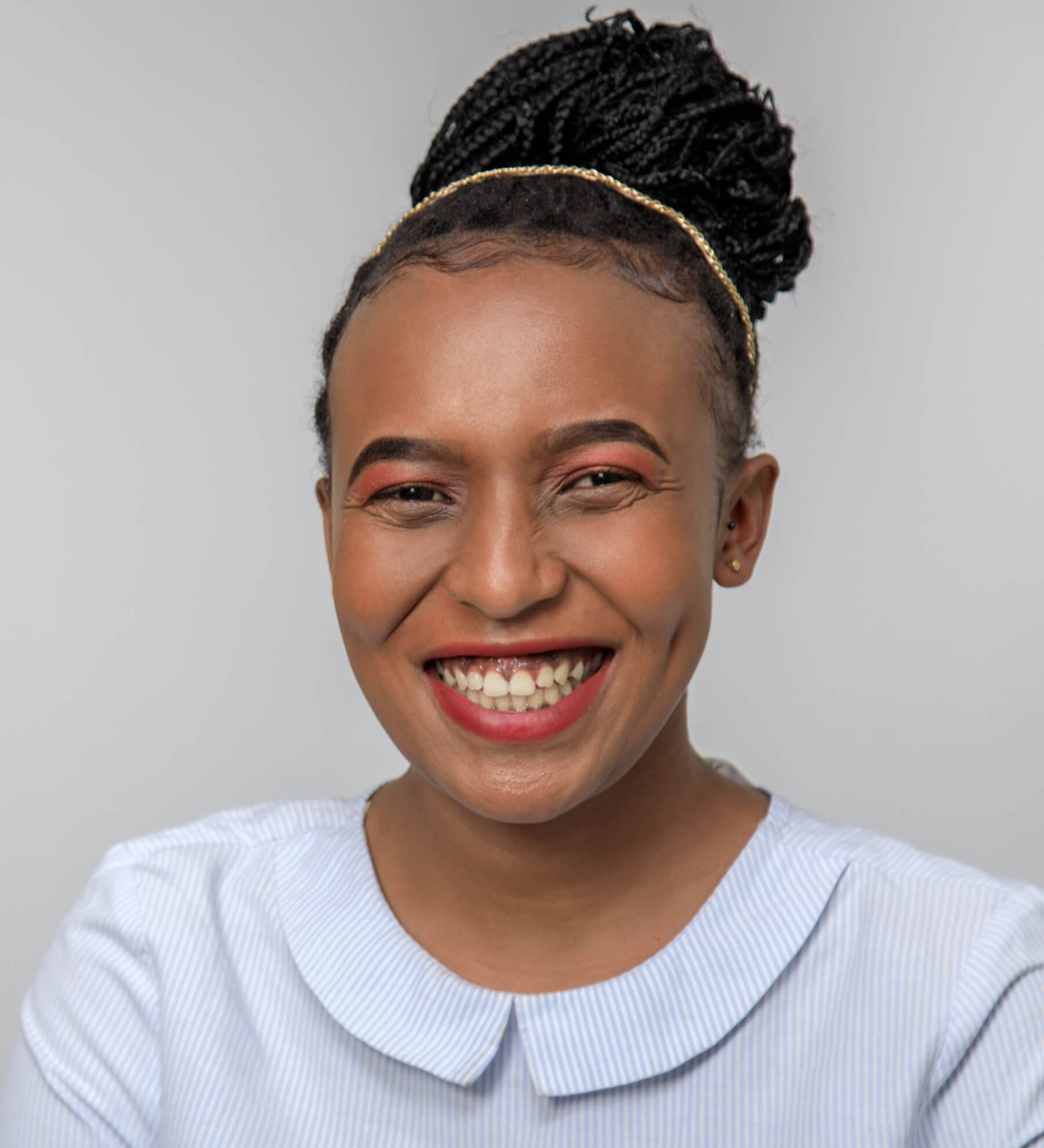
Maureen Mutheu
Construction Manager
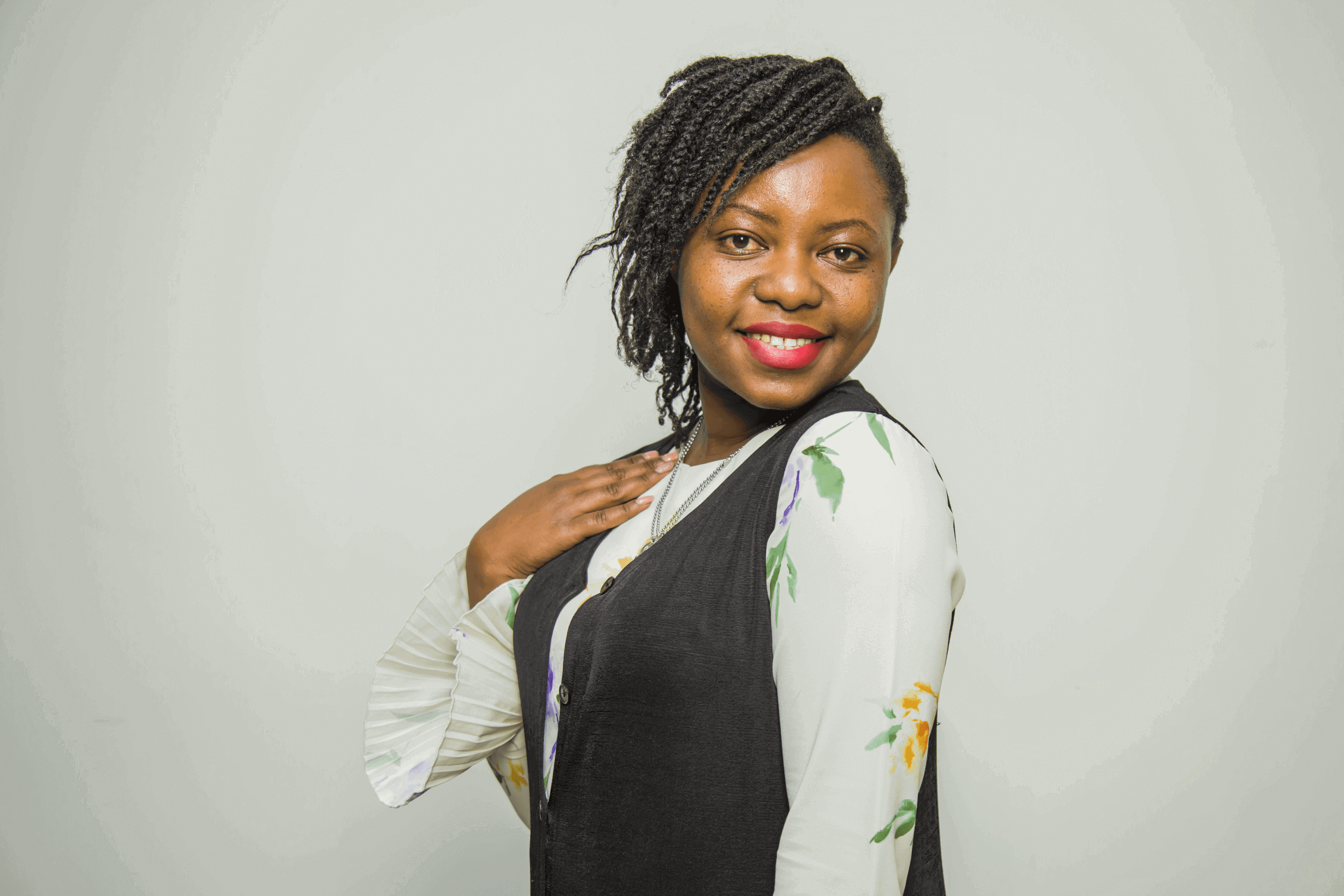
Margaret Gatwiri
UX Analyst
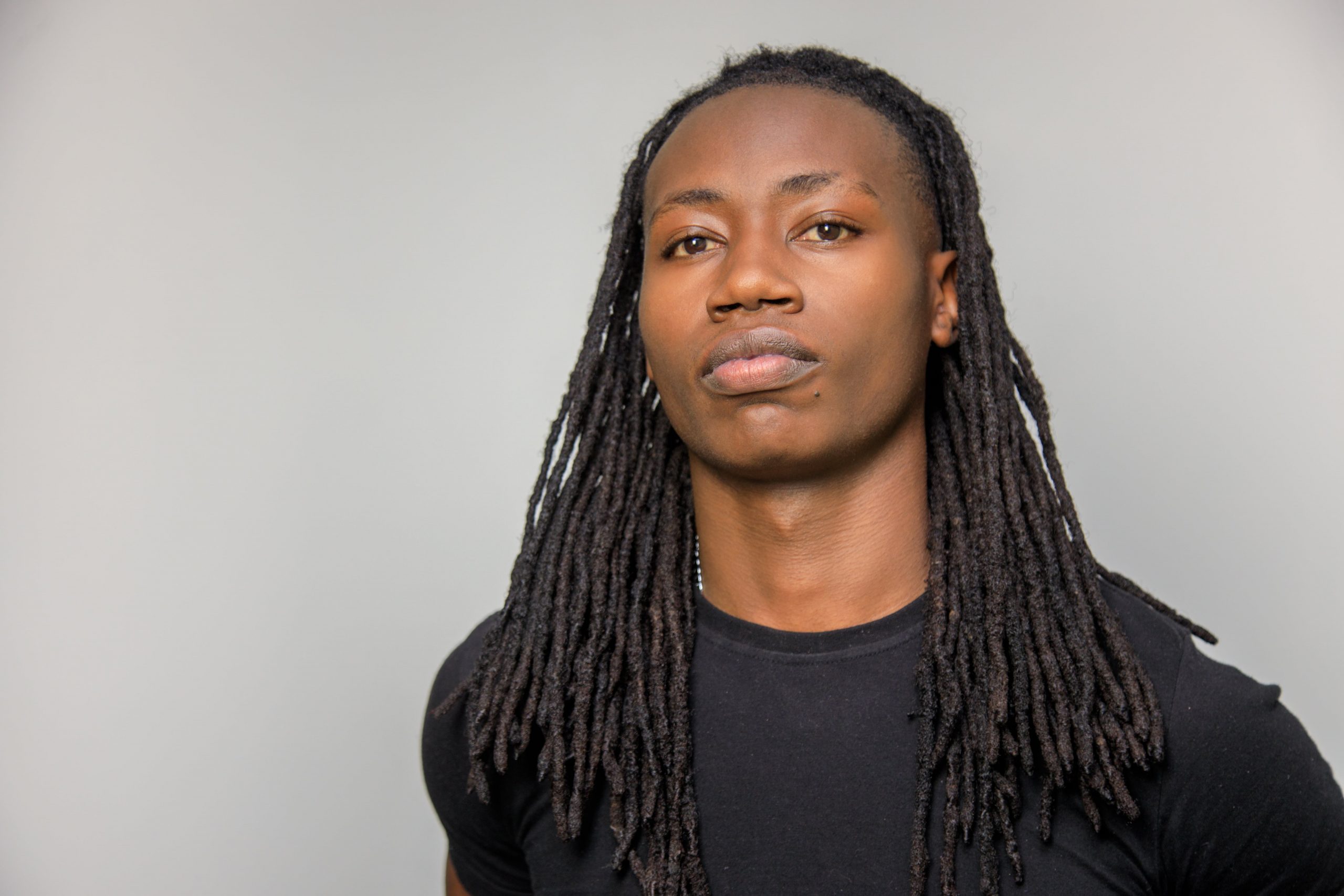
Michael Oduor
Architectural Designer
The Mideva Design Fellowship Bootcamp Highlights
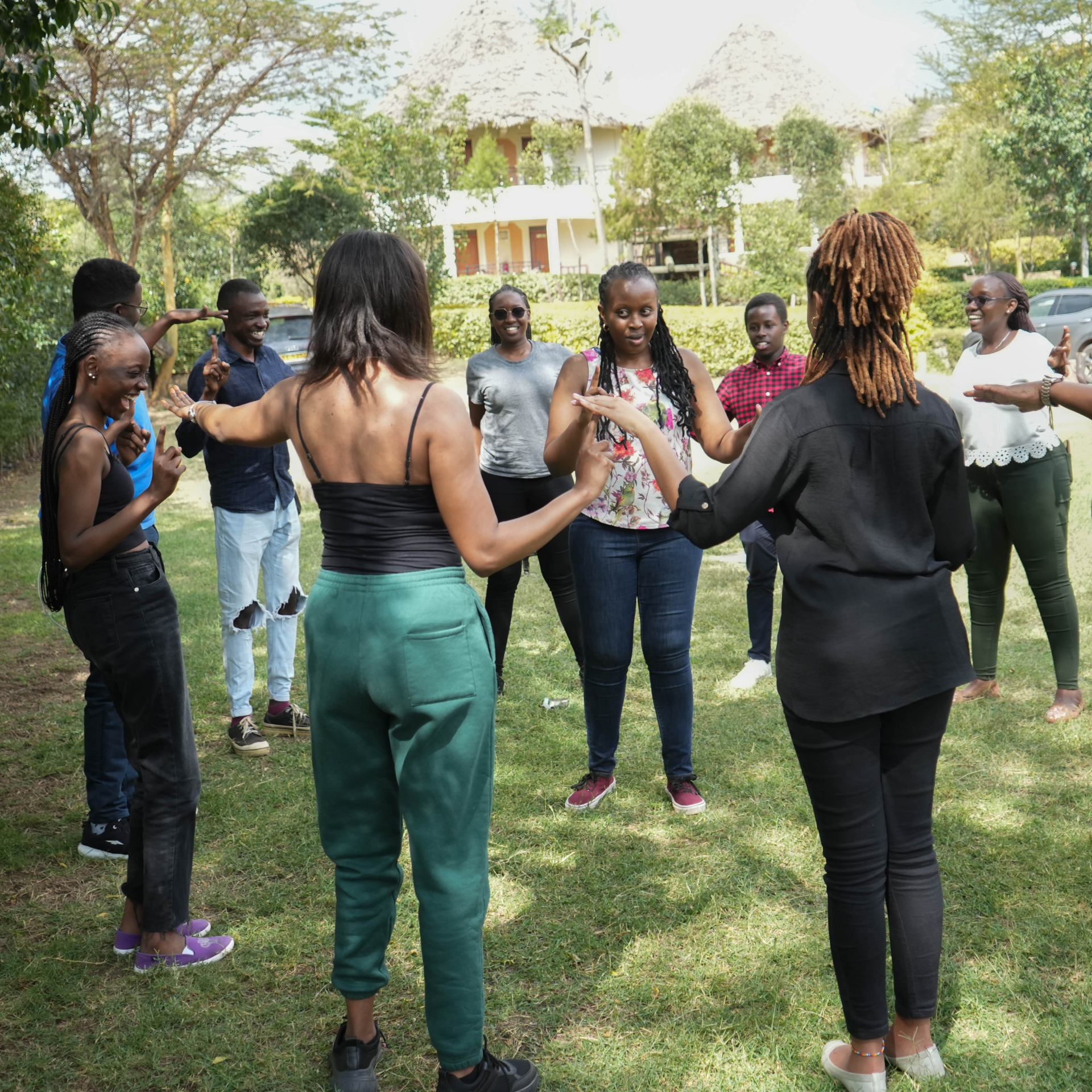
Where our fellows are at

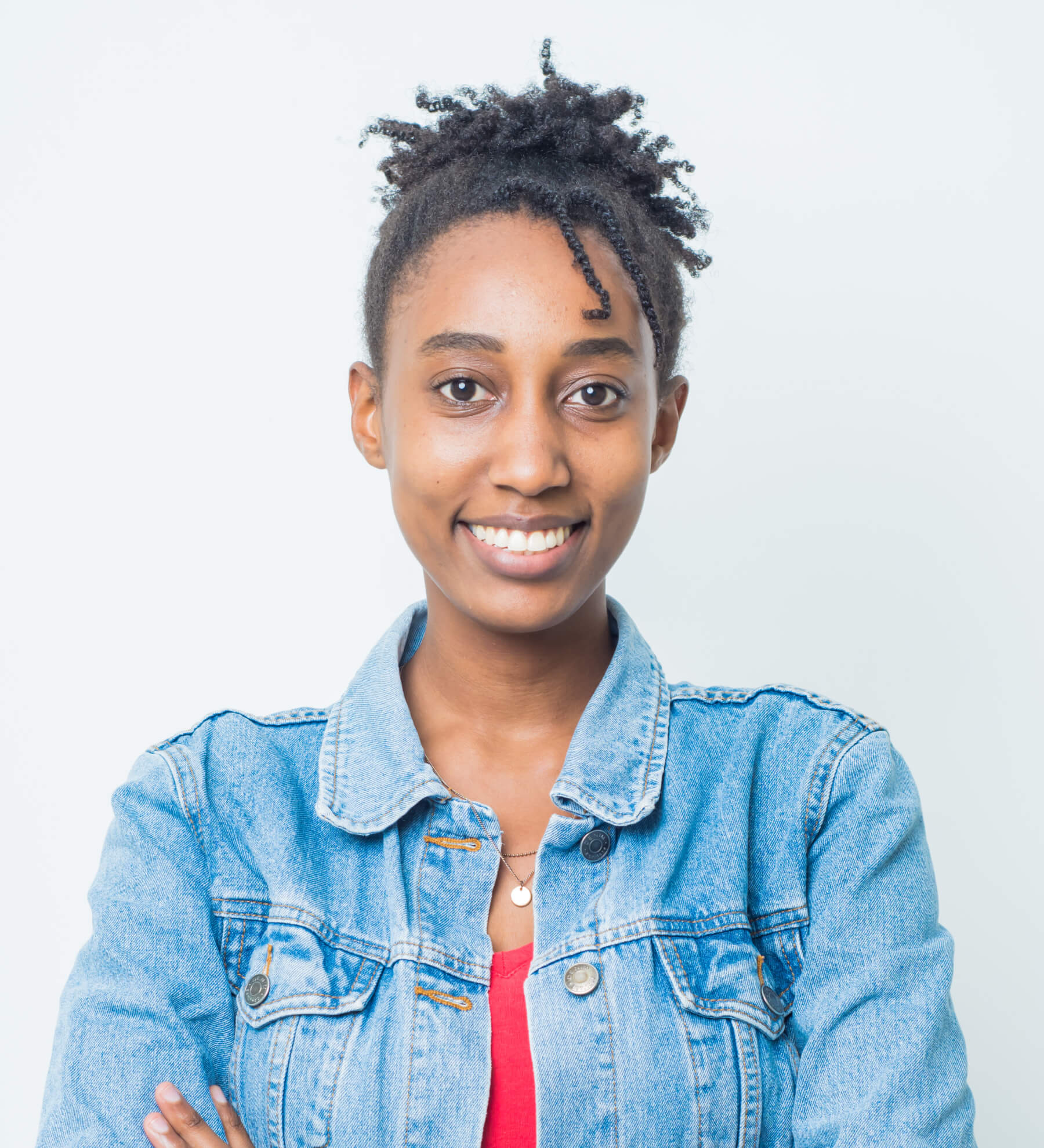

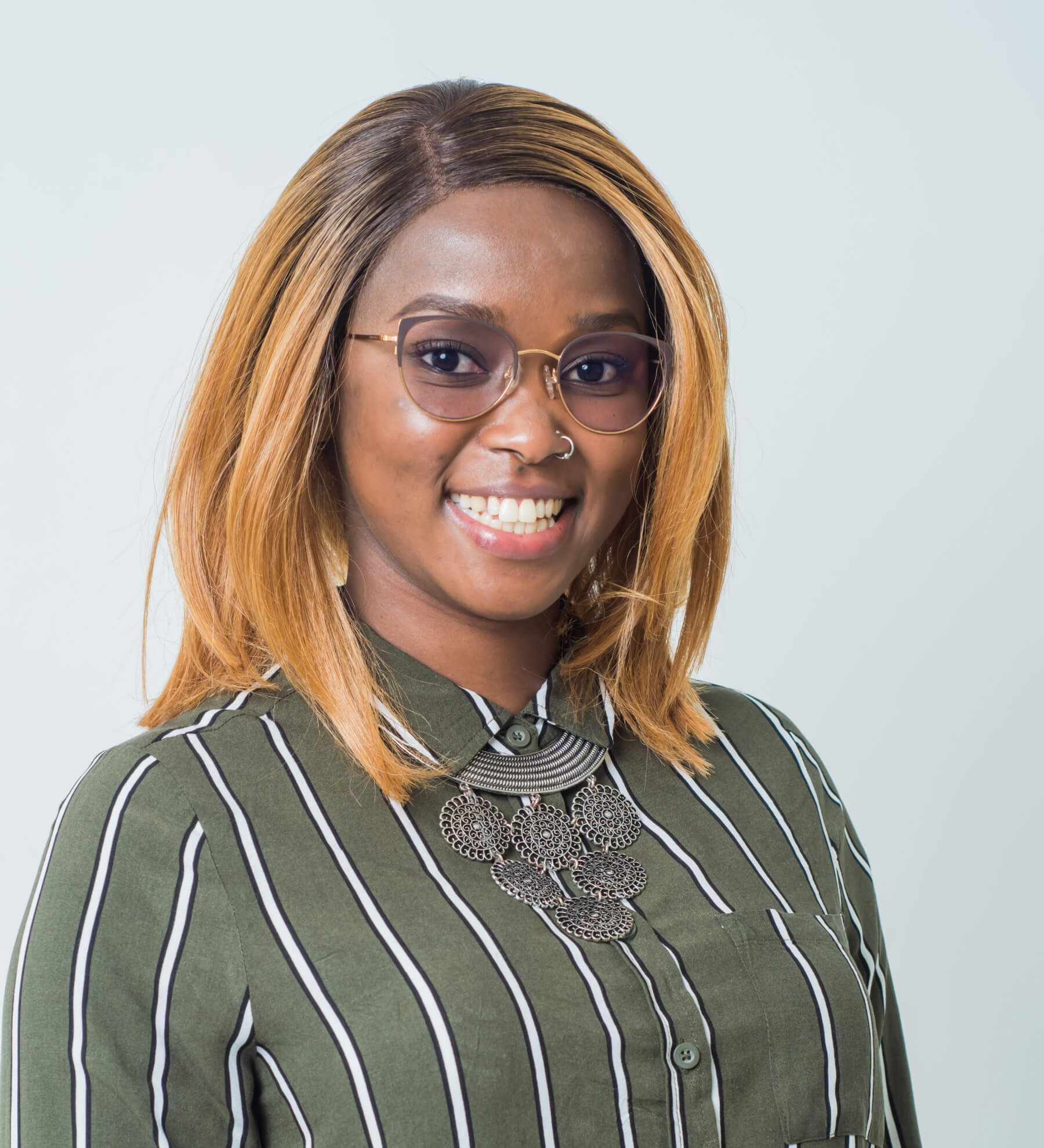
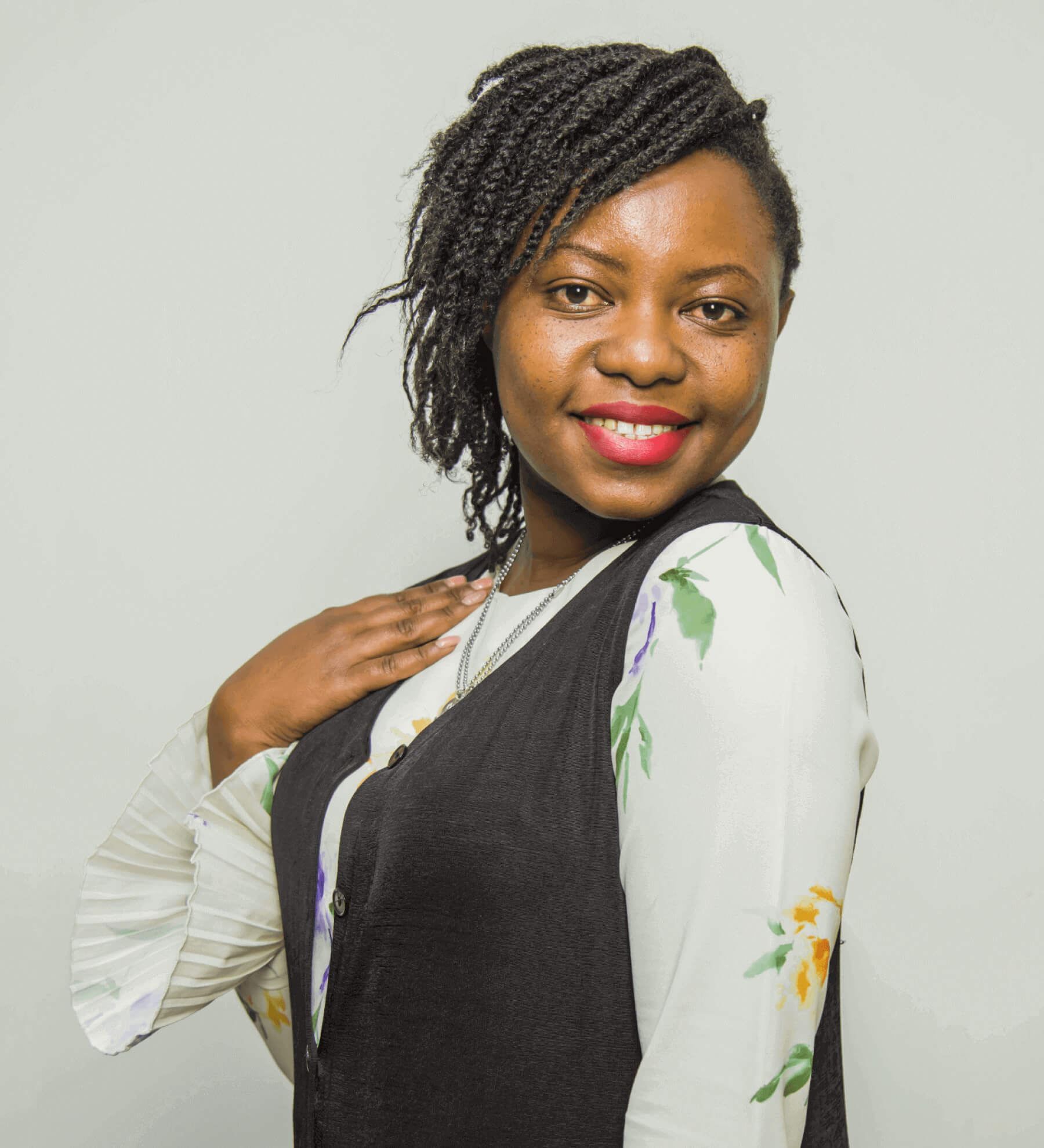

See our past fellowship projects
Research, Initiative, Climate
Research, Facilitation, Innovation Program Design, Program Management, Social Venture Design
Partner with us for the Design Fellowship
The value of the design fellowship is only as strong as the community and partnerships that we have built. We collaborate with diverse stakeholders and organizations who have a shared vision of investing in talent to achieve impact in organizations and communities. Here are some ways to get involved:
- As a Funding Partner
Work with us to provide unrestricted or restricted funding to run the fellowship. This can be in the form of grants, scholarships or financial aid to fellows and the program.
- As a Project Partner
Provide us with a challenge that your organization is looking to solve and the financial support to deliver the project.
- As a Talent Partner
Provide employment or consultancy opportunities for our fellows. You can also invest in talent at the start of the program.
- As a Learning Support Partner
Support the fellowship delivery as a facilitator, curriculum designer, mentor, guest speaker or design practitioner.
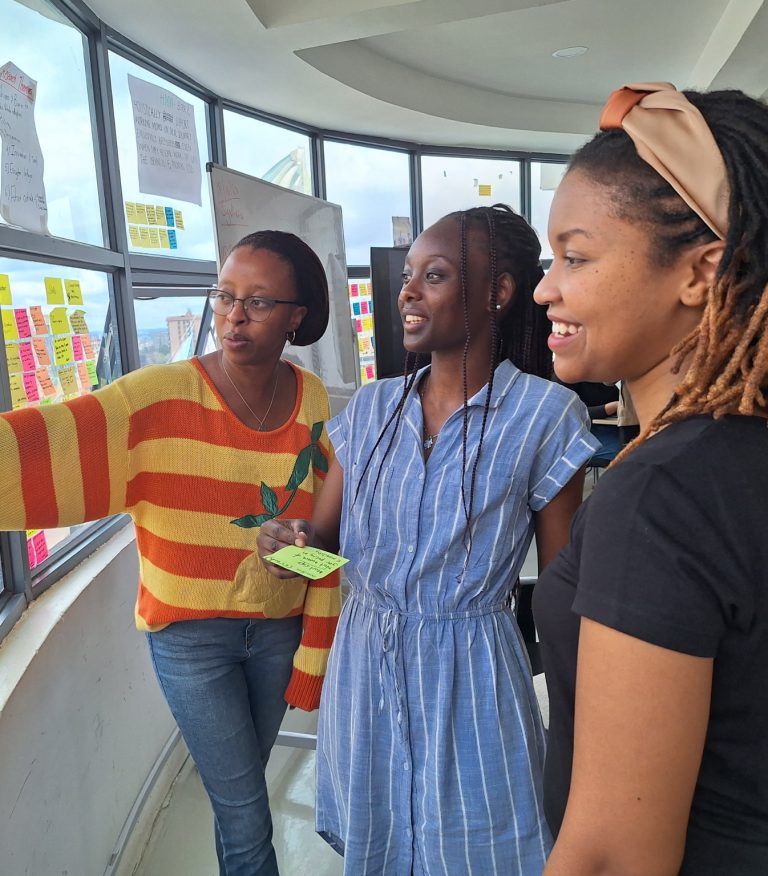
- © 2025 Mideva Ventures | All Rights Reserved

